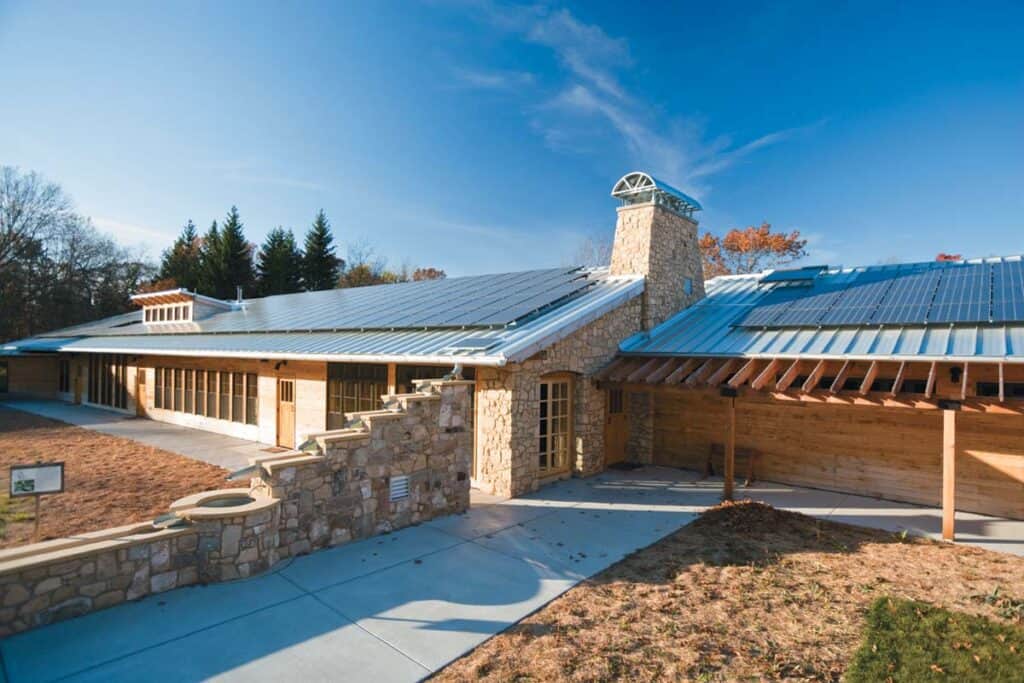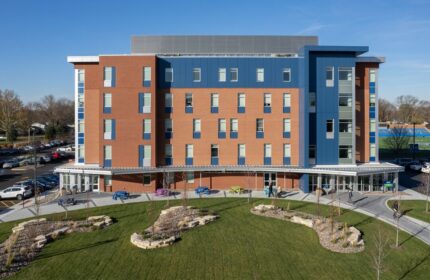Blog
Earth Day 2021: Land ethics are still alive and relevant

What does Earth Day mean to you? At The Boldt Company it’s a time for employees to reflect on their own land ethics responsibilities and show their appreciation. As part of Boldt’s onboarding process, every new employee is invited to read Aldo Leopold’s A Sand County Almanac and participate in a one-on-one discussion with CEO Tom Boldt. Leopold’s book is widely regarded as one of the most influential texts on environmentalism and conservation based on his years of stewardship on land in rural Wisconsin. On the surface, the book is a guidepost for sustainability and environmental responsibility, but a deeper dive shows Leopold’s lessons apply to today’s business culture.
“We started this program as a springboard to discuss each person’s definition of business ethics,” said Tom Boldt, CEO of The Boldt Company. “One of my jobs is to create a culture where people aren’t afraid to speak up about things that are important to them, and the book is a tool that helps us define individual and organizational values.”
“The book is all about values,” said Buddy Huffaker, executive director of the Aldo Leopold Foundation. “It’s draped in nature, but it’s asking us to stop and think about what is meaningful, where do we get all of our health and wealth from whether you’re in conservation or building a building.”
A special relationship: The Boldt Company and the Aldo Leopold Foundation
The relationship between the Aldo Leopold Foundation and The Boldt Company started in 2015. That’s when Boldt was hired to build the Aldo Leopold Legacy Center, when completed, the project was the greenest building in the world, garnering more LEED¨ points than any other building at the time. The LEED program, or Leadership in Energy and Environmental Design, is administered by the United States Green Building Council. Buildings can earn points for the green strategies used in construction; the Legacy Center earned a Platinum ranking.
Through the Legacy Center construction process, Leopold’s Land Ethic was a guidepost for daily collaboration. The Land Ethic calls for moral responsibility to the natural world and to care about people, the land, and strengthening the relationships between them. That sense of integrated collaboration grew a partnership that lasted far beyond construction as Tom Boldt eventually joined the foundation’s board of directors and served as its chair.
Using resources responsibly: Leopold teaches about making good choices
For Boldt, the link between using resources responsibly in the natural environment translated directly to the built environment. “Leopold teaches that we need to make good choices and use no more than we need. That is applicable for all of our team members, so we are good stewards of our customers’ resources from a financial and materials point of view,” Boldt said.
Migrating the lessons of A Sand County Almanac to the culture of a national construction company required some tools beyond reading the book, so that’s where Boldt reached out to the Aldo Leopold Foundation to form a partnership. The organization provided a private website for Boldt employees, access to Greenfire (a documentary about Aldo Leopold), and a study guide to use with the book. Huffaker said the foundation was eager to go all-in with the effort.
“We have encouraged a lot of people to read A Sand County Almanac and from our experience a little framework helps the discussion get deeper and easier,” Huffaker said. “We developed the discussion guide to help the reader and the facilitator have a more structured conversation about insights to be learned from the book.”
Boldt employees are guided through the book by going beyond the land conservation message to discuss topics of community, connection to resources, decisions made on personal values, the impact we make on land, and an ethical discussion of how our individual actions relate to larger social values. Once they are done reading the book, they have a personal discussion with Tom Boldt about how the values expressed in the book relate to work and their personal lives.
Day one of new employee orientation: A Sand County Almanac
“I thought the book was a wake-up call, said Delmi Menendez, a marketing associate in Boldt’s Oklahoma City office. “It makes you take a step back and think about how we don’t show enough appreciation for the land. We are focused on staying connected through technology, that we forget to connect with nature.” Menendez said that before she joined a construction company, she had never thought of the impact construction has on communities.
“On the surface it seems a conundrum, because construction is about consuming resources,” Huffaker said. “However, because construction has a big impact on our footprint, there are significant upsides to making better choices. By Boldt implementing this program, it shows the idea of the land ethic is still alive and relevantÑit’s not just a history piece.”
For Kristin Clements, a regional safety director in Boldt’s San Francisco office, the lesson was emphasized in real time. Construction on a project in the San Francisco area was delayed in part because plans called for removing trees from the site. Permits were not issued without a plan for replanting.
“Our decisions affected how we will add trees and plant greenery to make up for the trees we would be removing,” Clements said. “Construction has a big impact whether we’re taking resources from the land or building on the land, so we have to consider how we sustain the resources that we are using.” Clements said reading the book had a direct application to her working environment and how decisions were made for sustainability.
“Our ability to scale this discussion and offer it nationwide is an important way to discuss our values and connect them with each individual in our employ,” said Tom Boldt. Since the beginning the program, hundreds of Boldt employees have read the book encompassing 14 offices across the country.
The Boldt Company’s new employee orientation focuses heavily on the company’s values and ethics. The Boldt Company publishes a code of conduct and ethics for team members and reviews it with all new hires. The company identifies core values such as safety, honesty, fairness, hard work, performance, and a love of construction as core values. Employees have access to an Ethics Hotline where they can refer any concerns regarding values or ethics in a confidential manner.
As an employee-owned company, team members are encouraged to think long-term, creatively and with a mindset focused on continually improving processes. Using a firm set of ethics provides a foundation for innovation.
“We can enable more high performing teams if everyone understands and shares a common value system,” said Boldt President & COO Dave Kievet. “Each employee owner contributes to our reputation as an ethical company by learning, questioning, and applying the lessons learned from this exercise.”
For some employees, Boldt says the exercise is their first introduction to Leopold and his environmental essays. “But I want people to understand there’s more depth to the issue,” Boldt says. “The book and the Aldo Leopold Foundation emphasize the importance of collaboration to resolve differences. If we’re able to build relationships based on trust, we can make progress in our company and with our customers.”
About The Boldt Company
The Boldt Company (Boldt) is a leading professional construction services firm with customers across the United States and is a subsidiary of The Boldt Group. Founded in 1889, Boldt is a fourth-generation family and employee-owned firm headquartered in Appleton, Wisconsin. Focused on innovation, continuous improvement, and Lean principles, Boldt is recognized as a pioneer in Lean construction and in the industrialized construction space. Boldt operates 18 offices across the U.S. that serve customers in healthcare, power, industrial, education, automotive and commercial markets.


